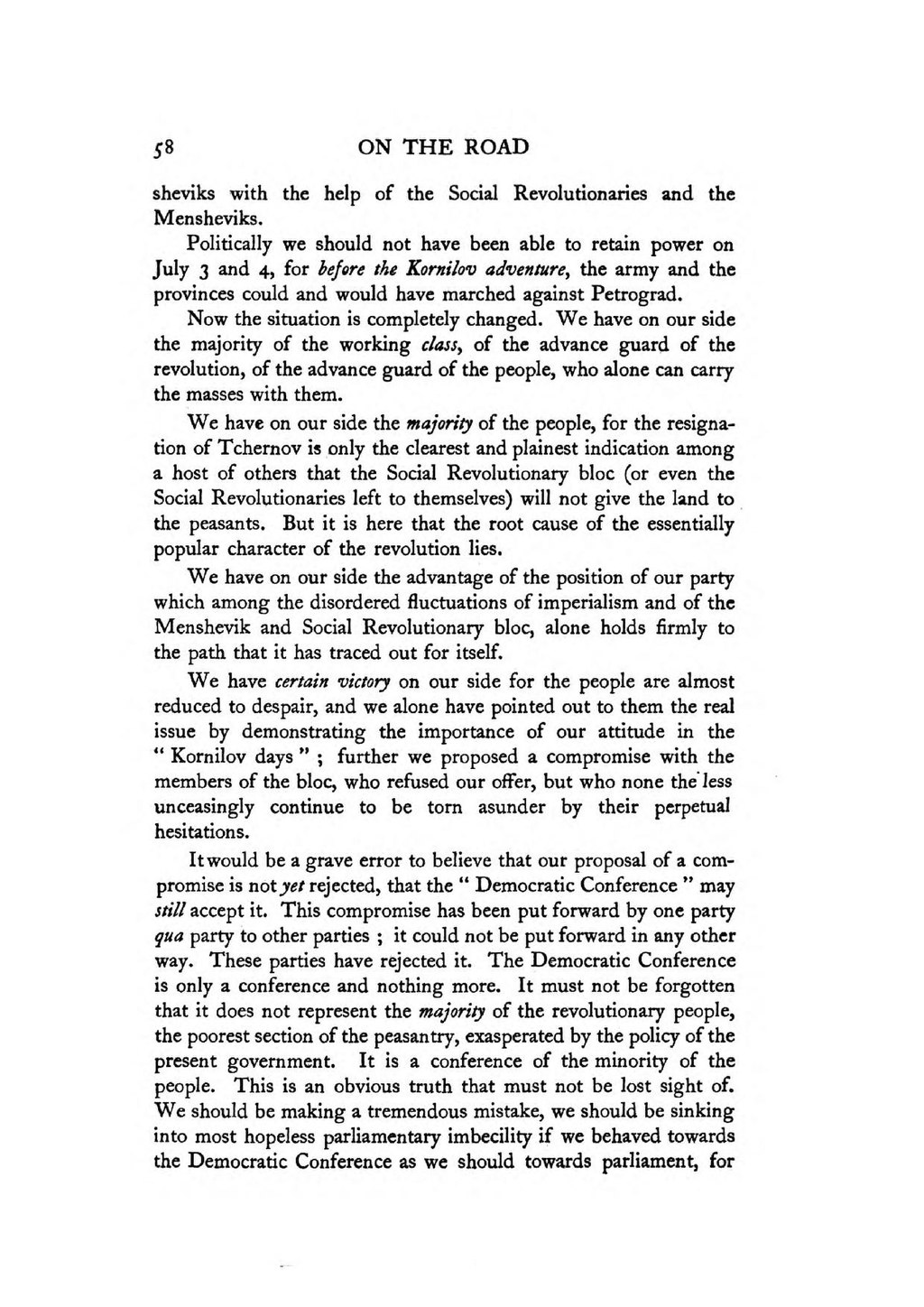sheviks with the help of the Social Revolutionaries and the Mensheviks.
Politically we should not have been able to retain power on July 3 and 4, for before the Kornilov adventure, the army and the provinces could and would have marched against Petrograd.
Now the situation is completely changed. We have on our side the majority of the working class, of the advance guard of the revolution, of the advance guard of the people, who alone can carry the masses with them.
We have on our side the majority of the people, for the resignation of Tchernov is only the clearest and plainest indication among a host of others that the Social Revolutionary bloc (or even the Social Revolutionaries left to themselves) will not give the land to the peasants. But it is here that the root cause of the essentially popular character of the revolution lies.
We have on our side the advantage of the position of our party which among the disordered fluctuations of imperialism and of the Menshevik and Social Revolutionary bloc, alone holds firmly to the path that it has traced out for itself.
We have certain victory on our side for the people are almost reduced to despair, and we alone have pointed out to them the real issue by demonstrating the importance of our attitude in the "Kornilov days"; further we proposed a compromise with the members of the bloc, who refused our offer, but who none the less unceasingly continue to be torn asunder by their perpetual hesitations.
It would be a grave error to believe that our proposal of a compromise is not yet rejected, that the "Democratic Conference" may still accept it. This compromise has been put forward by one party qua party to other parties; it could not be put forward in any other way. These parties have rejected it. The Democratic Conference is only a conference and nothing more. It must not be forgotten that it does not represent the majority of the revolutionary people, the poorest section of the peasantry, exasperated by the policy of the present government. It is a conference of the minority of the people. This is an obvious truth that must not be lost sight of. We should be making a tremendous mistake, we should be sinking into most hopeless parliamentary imbecility if we behaved towards the Democratic Conference as we should towards parliament, for
